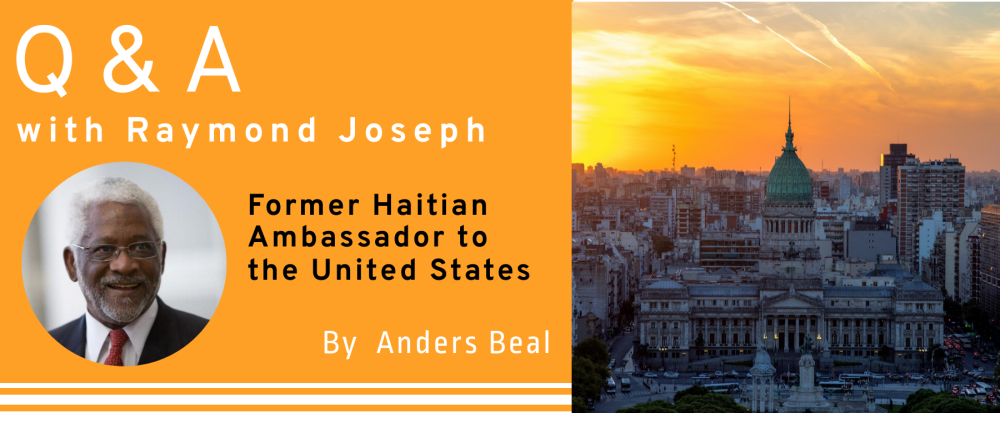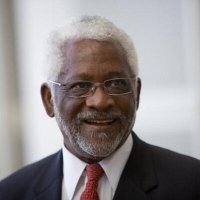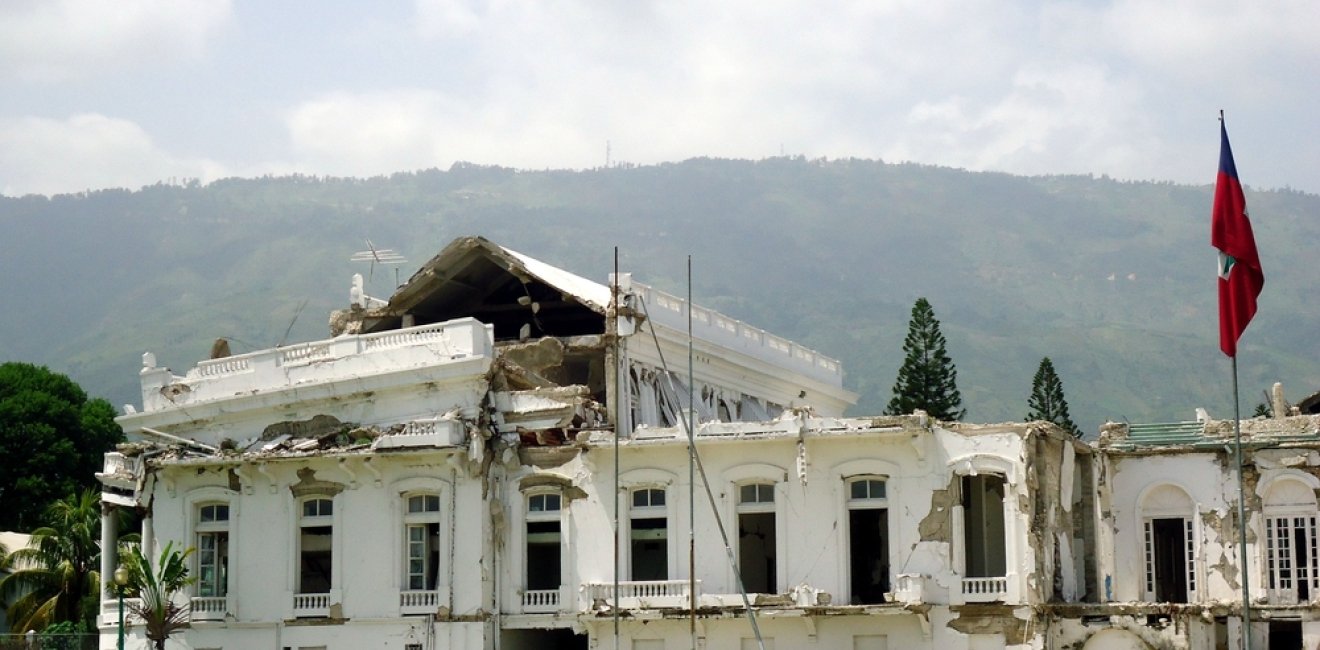
A blog of the Latin America Program

Q: In 1791, the Haitian revolution marked a turning point for the autonomy of former slaves in Hispaniola and the emergence of influential leaders in the global abolitionist movement. How should Americans view Haiti’s independence struggle?
A: Recognizing Haiti’s history is immensely important. Our ancestors were former slaves who fought to liberate themselves from French colonial rule, becoming a beacon of freedom for enslaved people everywhere. Yet our celebration for freedom was short lived. Influential slaveholders, including the democratic giants of today’s Europe and the United States, were threatened by the symbolism of Haitian freedom. The immediate embargo of the first black republic was designed to discourage copycat slave movements seen as threats to industries that relied on the exploitation of black slaves. El Libertador Simón Bolívar, the emancipator of Gran Colombia, found refuge in my hometown of Les Cayes, in southern Haiti. In return, Alexandre Pétion, the Haitian president at the time, reportedly only asked that Bolívar free the slaves wherever his revolutions succeeded.
The embargo left Haiti highly indebted, setting the stage for foreign interventions. In 1825, French King Charles X dispatched an armada to force Haiti to pay $150 million francs for French property lost following Haiti’s independence, including slaves. Haiti paid the last installment of that debt in 1947. In all, Haiti’s reparations to former slaveholders reached $21 billion in today’s dollars, roughly Haiti’s GDP in 2021. These historical challenges, and Haiti’s contemporary crises, cannot be separated from the influence of great powers. That said, despite actions in the United States and Europe that harmed Haiti during its independence period, Haiti has also found international allies who championed the cause of freedom and democracy. That includes President Abraham Lincoln, who recognized Haitian independence. As Black History Month is celebrated in the United States, Haiti should be included in U.S. foreign policy discussions. It is time for a Marshall Plan-like project to rebuild Haiti, to offer hope to those suffering poverty and empower Haitians to build a brighter future.
Q: Haiti’s recent history has involved immense suffering, including from repeated natural disasters and authoritarian governance. You were involved in countering the Duvalier dynastic dictatorship (1957 to 1986), as a political activist and as the founder of a widely-circulated newspaper, Haïti Observateur. Today, several countries in the region face significant democratic backsliding. What can Haiti’s past, and your personal experiences, teach about the defense of democracy in the Western Hemisphere? What is the state of democracy in Haiti today?
A: Authoritarian alliances are causing mayhem and suffering in this hemisphere. Yet in Haiti, some young leaders – unaware of the history of the 29-year Duvalier dictatorship, when pro-government gangs, known as the Tontons-Macoute, murdered thousands and caused a significant brain drain – say things were better under the Duvaliers. Today, the children of those who fled Haiti occupy posts of distinction not in Haiti, but in the United States and elsewhere. They include Claudine Gay, the new president of Harvard University; Reginald DesRoches, president of Rice University in Houston; and Henri Ford, the dean of the Miami Leonard Miller School of Medicine. That exodus continues amid a prolonged political crisis in Haiti. Prime Minister Ariel Henry, a neurosurgeon who succeeded Haiti’s assassinated former president, Jovenel Moïse, in 2021, has failed to hold elections, as promised. Blaming worsening security conditions, including the proliferation of gangs, Henry has held to power, though he is hardly governing. The majority of Haitians favor his resignation and the establishment of an interim government. Henry’s latest attempt to hold onto power was the creation of a High Council of Transition to reform Haiti’s high court, draft a new constitution and choose members of a provisional electoral council to organize elections, though not immediately.
Q: The assassination of President Jovenel Moïse in July 2021 remains unsolved. The U.S. Justice Department has charged several people for their alleged involvement, but Haitian investigations have made little progress, hamstrung by corruption, a lack of judicial independence, and threats against judges overseeing the inquiries. What is the role for the United States in the investigation into the Moïse assassination and the strengthening of the rule of law in Haiti?
A: It will be impossible to get justice for the slain president because too many highly placed individuals were allegedly involved in his assassination, reportedly including foreign citizens. It is a tall order to get Haiti back on its feet, operating like a normal country. There cannot be any functioning government when all of the country’s institutions are almost non-existent, including the justice system. The last vestige of democratic rule disappeared on January 9, when the terms of the remaining ten senators expired. Indeed, we have to start from scratch in turning Haiti from a failed state into a working democracy.
Authors



Latin America Program
The Wilson Center’s prestigious Latin America Program provides non-partisan expertise to a broad community of decision makers in the United States and Latin America on critical policy issues facing the Hemisphere. The Program provides insightful and actionable research for policymakers, private sector leaders, journalists, and public intellectuals in the United States and Latin America. To bridge the gap between scholarship and policy action, it fosters new inquiry, sponsors high-level public and private meetings among multiple stakeholders, and explores policy options to improve outcomes for citizens throughout the Americas. Drawing on the Wilson Center’s strength as the nation’s key non-partisan policy forum, the Program serves as a trusted source of analysis and a vital point of contact between the worlds of scholarship and action. Read more

Explore More in Weekly Asado
Browse Weekly Asado
Dengue Haunts South America’s Summers

Lessons from Costa Rica’s Economic Transformation

Women and Latin America’s Digital Revolution

